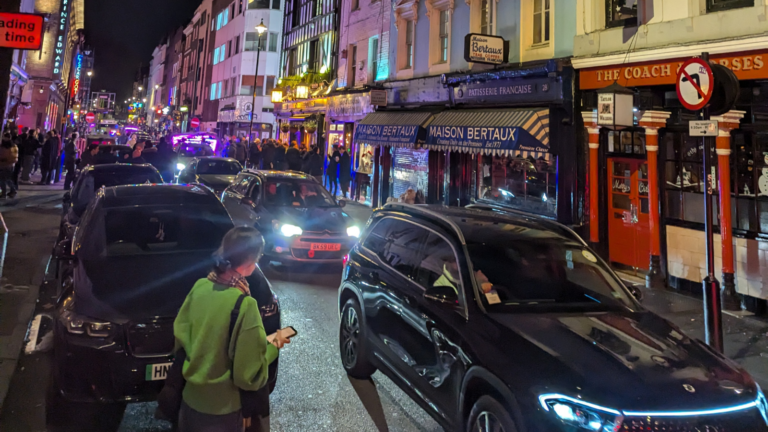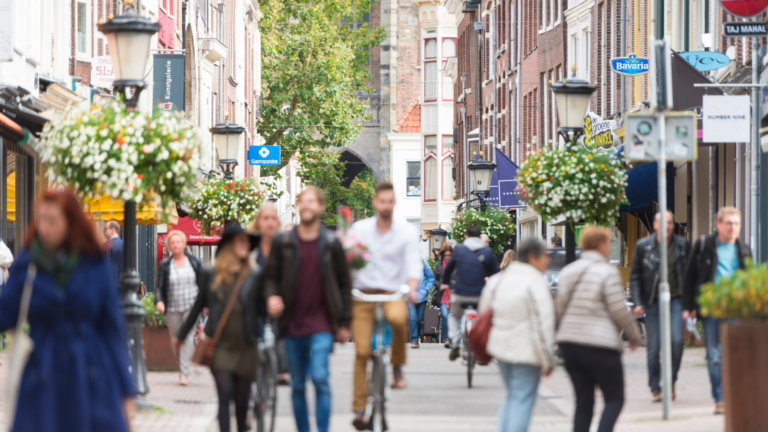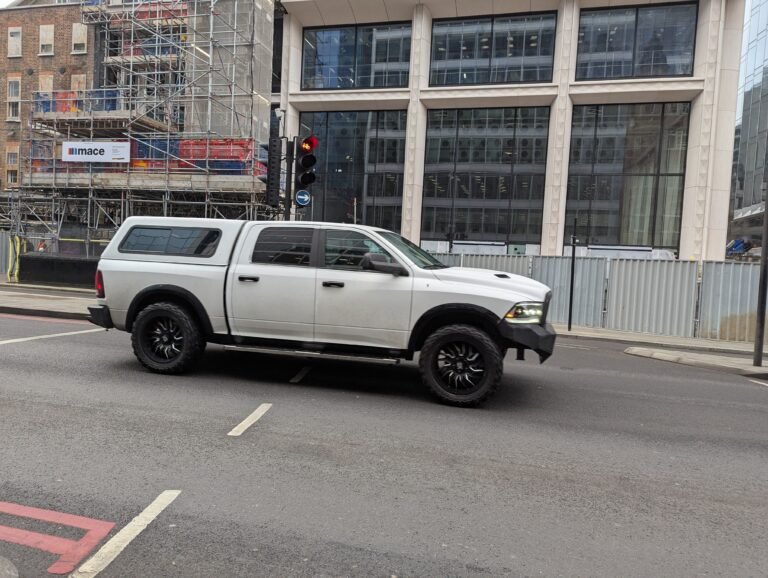
Children demand action on 'carspreading' as UK research shows SUVs 3 times more likely to kill a child under 10
A group of school children urged councillors in London to take action to stop ‘carspreading’.
Group of children organise deputation to Lambeth Council calling for action on deadly SUVs
Lambeth Council in South London to commission study into SUV danger as councils mull higher parking charges
First academic paper from UK car crashes shows SUVs three times more likely to kill a young child, with particular risk from heavier and higher SUVs
Call for higher parking charges for dangerous SUVs that damage roads, crowd out parking spaces and worsen road danger
A group of school children urged councillors in London last night to take action to stop ‘carspreading’ as new research shows SUVs are three times more likely to kill a child under the age of 10.
A delegation of children from primary schools in South London attended a meeting of Lambeth Council last night (Weds 16 July) calling on councillors to introduce new parking charges based on the size of a car to discourage supersized SUVs.
Lambeth Council are reported to be considering introducing higher parking charges for supersized SUVs, which would make them the first council in the UK to follow the lead of Paris in introducing parking charges based on the weight of a vehicle. The Council are promising to commission a study into SUV road danger with two other London boroughs.
“Big cars take up more space and that creates traffic jams in our small streets. I have friends with asthma and these big cars and traffic jams make it worse, which makes me feel sad. Big cars are bad for the environment. They also cause more wear on their brakes and the road surface. This means more air pollution and higher carbon emissions. We want Lambeth Council to understand why SUVs are bad so we’re going to to ask the Council to make it much more expensive to have a bigger car.”
Dotty Robertson, 8 years old

Responding to the deputation, Cllr Rezina Chowdhury, Deputy Leader of Lambeth who leads on Clean Air, said:
“We hear you, we agree and as a borough with equity and justice at our heart, we will act to protect you and other vulnerable residents. It’s not fair that the majority of public space is used exclusively by the minority of people who choose to drive, and it’s not fair that those who need to drive struggle to find a spot because the space has been taken up by other people driving even larger vehicles.”
“We’re looking at ways to discourage vehicles that contribute most to the road danger emergency, including learning from places that have already done this like Paris and Cologne. We will commission a study in partnership with two inner London boroughs to understand the relationship between technical vehicle dimensions and road danger. We believe the higher bonnet height of vehicles like SUVs is critical in determining the likelihood or severity of injury where there is a collision.”
“Big cars take up more space and that creates traffic jams in our small streets. I have asthma and these big cars and traffic jams create pollution, which makes my asthma worse. That means I can’t always breathe easily and need my inhaler, which I really don’t like.”
Zayd Shaikh, 9 years old
The call coincides with a new independent peer-reviewed study from the London School of Hygiene & Tropical Medicine (LSHTM) which for the first time examines 359,000 road traffic deaths in Britain from police crash data over 20 years to produce a comprehensive analysis of the risk of injury and fatality from SUVs.
It found that SUVs dramatically increase the danger for children. Children aged 18 and younger struck by SUVs had 77% higher odds of a fatal injury than those hit by cars, while young children (aged 0–9) are hit hardest: they are three times more likely to die from a collision when hit by an SUV. [1]
Critically, for policy makers who are considering measures to curb SUVs, the study found that vehicle weight and height both predicted greater injury risk, but not vehicle length.
Dr Anna Goodman, Assistant Professor at the London School of Hygiene & Tropical Medicine (LSHTM) and lead author of the study said:
“In the UK, we have seen a huge increase in the sale of ever-larger cars. Our findings highlight that these larger vehicles are particularly dangerous for children, especially young children. This is probably because children are shorter in height, and are therefore more vulnerable to the risks of being hit by vehicles with a tall front bonnet.
Cities and countries around the world are starting to introduce measures to discourage the use of these large vehicles. Our study strengthens the road safety rationale for such measures in the UK. It also suggests measures that focus on the weight or height of vehicles, rather than their length, will be more effective.”
Children from London primary schools are urging councillors and the Mayor of London to take urgent action.
“I want the council to know that SUVs make me feel scared. They tower over me when I’m cycling, they are so big I get very worried that they will crash into me. Children hit by big cars when they’re walking and cycling are much less likely to survive. And that’s really terrifying. One day, I’d like to be able to walk or cycle around on my own, to go to a friends house or get to school, but these huge cars means it feels too scary to do that.
Ottie Palmer, 9 years old
The children are calling for councils across London to: introduce tiered parking charges based on vehicle size and weight, discouraging SUV ownership—following Paris’ successful model. They are also calling for councils like Lambeth to launch a public awareness campaign highlighting the extra risk these vehicles pose to children, pedestrians, and cyclists.

Polling shows that 79% of London parents think it’s not safe enough for children to cycle on London’s roads (8% disagree), while 61% are concerned that bigger cars make it more dangerous for children to walk and cycle in London (16% disagree). [2]
“Every day I worry about my children’s safety just walking to school. The rise in massive SUVs on our streets has made a simple journey feel dangerous. Parents shouldn’t have to feel this way. It’s time councillors stepped up with bold, coordinated action to protect children and reclaim our neighbourhoods.”
Nicola Pastore, a mum of three in Lambeth who set up Solve the School Run
London Assembly members have passed a motion calling on the Mayor of London, Sir Sadiq Khan, to urge London boroughs to consider higher parking charges for larger vehicles. [3]
Labour Assembly Member Elly Baker, who proposed the motion, argued that London’s streets were not designed for large cars like SUVs, which now make up a third of vehicles on the road. “Their size, weight, and high bonnets increase risks to pedestrians and cyclists, reduce parking space availability, and cause more road damage,” she said.
Supersized SUVs reduce drivers’ vision of other road users – and can entirely compromise it. Drivers behind high bonnets can fail to see children as old as nine in front of them, for example, when leaving a driveway or parking space. At junctions, compromised vision increases crashes, particularly when turning. Poor vision may also lead to more near-miss incidents, burdening all other road users with higher risks and increased danger. [4]
To tackle the phenomenon known as ‘carspreading’, campaigners are calling for fairer taxes in favour of lighter and more appropriately sized cars and for parking costs in cities to be based on the size of a car. These measures form part of the manifesto from the SUV Alliance, which includes Solve The School Run, Mums for Lungs and Clean Cities.
SUVs, have become increasingly popular in recent years: as of 2023, SUVs made up nearly half (48%) of new car sales globally, up from 15% in 2010 [5]
Notes to Editors:
- More info: Alex Bigham: 07830195812 alex@alexbigham.com;
Interviews: Nicola Pastore, Solve the School Run: 07765105115 nicola@solvetheschoolrun.org
Oliver Lord, Clean Cities: 07779811380 oliver.lord@cleancitiescampaign.org - Hi Res Photos: SUV Alliance – Google Drive and
SUVs and families (Credit Crispin Hughes) – Google Drive and https://climatevisuals.org/search/?searchQuery=crispin+ hughes - Pictures and videos of deputation: 16 June Lambeth – Google Drive



